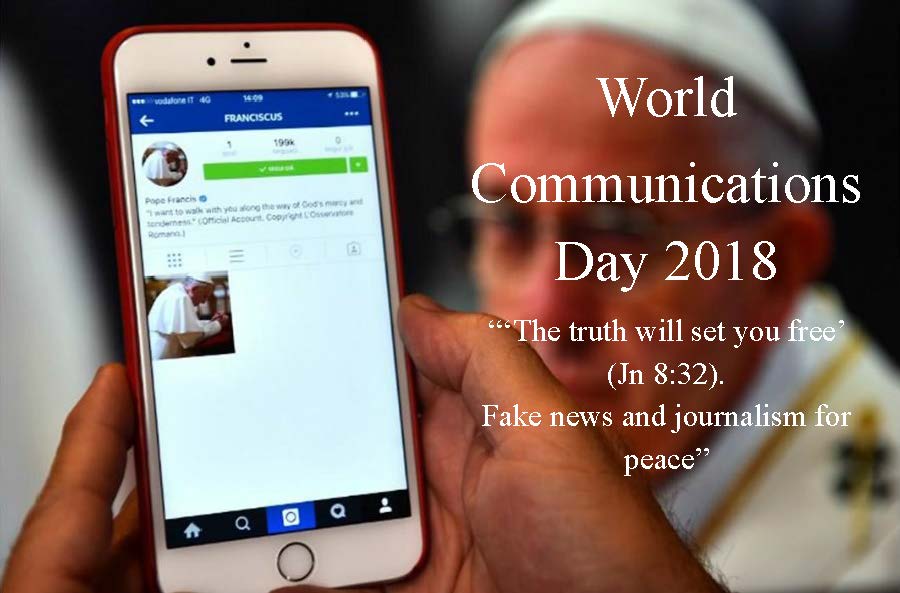On 24 January, the feast of Saint Francis de Sales, Pope Francis published his message for World Communications Day 2018 on the theme, ‘“The truth will set you free” (Jn 8:32). Fake news and journalism for peace’.
In his message, Pope Francis called for ‘a journalism that is truthful and opposed to falsehoods, rhetorical slogans, and sensational headlines. A journalism created by people for people, one that is at the service of all, especially those – and they are the majority in our world – who have no voice.’
Archbishop Eamon Martin, Archbishop of Armagh and chair of the Bishops’ Council for Communications, welcomed Pope Francis’ message saying, ‘This year’s theme is particularly relevant in this era of social media and digital communications where we now live.’
‘All of us need to ask ourselves “what is ‘fake news’?”. This is a very important question for each of us to reflect on. Pope Francis tells us “fake news” is “false but believable news” that is sensational and often goes viral. It is the “spreading of disinformation online or in the traditional media” “based on non-existent or distorted data meant to deceive and manipulate the reader”. It seeks to “advance specific goals, influence political decisions, and serve economic interests”.
Archbishop Martin continued, ‘In his own words, Pope Francis tells us we can “rediscover the truth when we experience it within ourselves in the loyalty and trustworthiness of the One who loves us” and we can recognise the truth of statements from their fruits – whether they provoke arguments and cause division or promote informed mature dialogue and discussion with friends, family, colleagues and loved ones. He tells us: “Informing others means forming others; it means touching peoples’ lives”.
‘The Holy Father describes the work of journalists as not just a job but a mission. He is inviting everyone to promote a “journalism of peace” – journalism that is truthful, and opposed to falsehoods, rhetorical slogans, and sensational headlines. He says journalists are the “protectors of news” with a responsibility to expose the truth at all times and hold people to account.’
Archbishop Martin concluded, ‘Today our world is rich in communications resources and our era is often described as the age of “democratic journalism”. The way we express ourselves has changed radically and we can now share our ideas on a multiplicity of platforms. There is great potential in social media to communicate the truth of the Gospel on the “digital highways”. It is important that we do so with compassion and love – otherwise, as Saint Paul warns, we will come across like “a gong booming” or “a cymbal clashing”! The Good News, spoken in love, will enhance, not destroy, the life of the Church and of society. In the coming months, as we reflect on the message of Pope Francis, I encourage Catholics and all people of goodwill to consider how we can be more authentic, active and “truth-full” witnesses in the new digital world.’
World Communications Day will be celebrated on Sunday 13 May, Solemnity of the Ascension of the Lord. The full text of Pope Francis’ message can be found on www.catholicbishops.ie.


